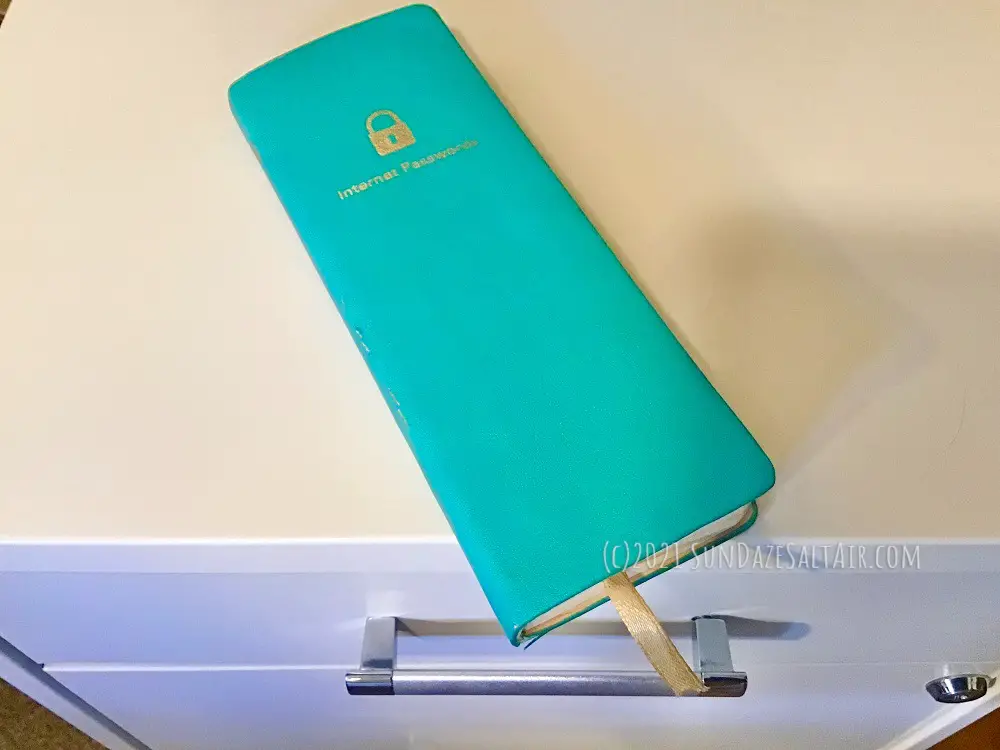
File Cabinet Decluttering: How Long Do I Have To Keep Old Financial Files? When To Throw Out Old Bills, What To Keep & How Long
The Purge… Free Up Space By Decluttering Your File Cabinet
How often do you feel you are up to your ears in paper? Even in this “paperless’ digital age, we still end up printing important documents, amassing receipts, and collecting bills. If you have an established filing system, you are already ahead of many who rely on a makeshift filing system also known as “piles of paper under the desk.” Whatever your preferred filing method, you may find that all these papers are starting to take up a lot of valuable space. And do you really need to save that cable bill from five years ago? Let’s figure out what to keep, what to shred and what to toss once and for all. So, let’s finally stop accumulating paper like a hoarder, and declutter your home like a minimalist.
Quick Guide To When To Throw Out Financial Documents
While many have gone “paperless” and mainly receive electronic statements, there are still a number of us who prefer a tangible paper hard copy of their documents. And even if you have gone “paperless,” there are probably quite a few documents you still receive in the mail or which you have had to print out that also you inevitably end up storing. For all these cases, let’s take a look at the best practices of personal record retention so you can get your files, and life, in order.
***Disclaimer: These guidelines are for informational purposes only & not to be construed as financial or legal advice. While I have used record retention guidelines both personally & professionally in the legal field, I have verified the following guidelines with IRS.gov & HerMoney.com both of which you should refer to for more in-depth financial & records retention guidance….
**Note: This post contains affiliate links for which a small commission may be earned if you decide to make a purchase through a link
When To Throw Out Financial Documents & What To Keep For… Less Than A Month?
Weekly: Small-Purchase Receipts
Do a weekly purge of any receipts for purchases that you are certain you will not be returning, and which don’t need to be checked for accuracy on a credit card statement. At the same time, be sure to save any receipts for expenses that you plan on claiming as tax deductions at the end of the year.
What To Keep For… Up To One Year (With Caveats)?
Utility/Cable/Phone Bills & Statements
It seems many of us end up collecting these like baseball cards. Utility bills only need to be kept for a few months and can be discarded once you have verified the information is correct and paid the bill.
One caveat is if you run a home-based business and need to deduct some of these expenses for tax purposes. In such cases, you definitely want to keep statements for tax season and maintain them with your return for three years.
If you are interested in tracking your utility usage, most utility companies offer a breakdown of your usage online.
Credit Card Statements & Receipts Of Items You’ve Charged
You really only need to store these until you confirm the charges for accuracy and have proof of payment, unless the statement contains a deductible purchase transaction you need for tax purposes. In that case, again, you will want to save those with your tax return for three years. If you have inadvertently tossed them, don’t stress — like most everything, you can usually find your statements archived and available in your online account.



What To Keep For… One Year?
Pay Stubs
If you actually still get paper pay stubs, you will want to file and hang on to them until the end of the tax year. Then once you compare them to your W-2 as well as your Social Security statement to verify that everything matches, you can go ahead and shred them.
However, if you are thinking of buying a house and applying for a mortgage, it may make your life easier to hold onto pay stubs since lenders often request them.
Medical Bills & Receipts
Keep these until you are sure your claim has been paid by your health insurance company. Since your insurance company may request proof of a doctor visit or treatment, you should keep these for one year. Of course, if you are planning on deducting any medical expenses on your tax return, you will want to hold onto them for three years like most tax records.
After you declutter your office, learn how to make any room with high ceilings feel cozy & intimate here…
What To Keep For… Three Years?
You should save any documents that support income, deductions or credits claimed on your tax return for three years after the tax filing deadline.
Bank Statements & Canceled Checks
Save your bank statements for up to three years to support your tax return just in case you are audited by the IRS. Of course, your bank likely offers electronic statements you can retrieve online which can cut down on paper.
Receipts For Anything You Plan To Itemize On Your Tax Return
As discussed above, for anything you intend to itemize on your return, maintain those receipts with your tax records. Consider using and labelling envelopes to store receipts under different categories of expenses.
Brokerage Statements & Investment Records
You should maintain these for three years for proof of capital gains tax in the event you are audited by the IRS, as these track taxes owed as a result of selling stocks or properties. However, once you receive any 1099’s at the end of the year and reconcile monthly statements with them, you can then shred and discard any monthly statements.
W-2’s
Save these for three years since they report your income.
1099’s
As discussed above, keep these for three years since they report any investment income, dividends, capital gains or interest.
1098’s
Hold onto to these if you deducted mortgage interest.
Cancelled Checks & Receipts For Charitable Contributions
Again, keep these records as proof for three years.
HSA (Health Savings Accounts) Records
Keep any records that show eligible expenses for withdrawals for three years.
Tax Returns
According to IRS.gov, keep records for three years from the date you filed your original return or two years from the date you paid the tax, whichever is later, if you file a claim for credit or refund after you file your return.
**Keep your tax records for seven years if you file a claim for a loss from worthless securities or bad debt reduction.
**TIP! No Shredder, No Problem:
When throwing out documents and mail with personal information, make sure to tear or cut them up. Then simply divide the pieces among several different garbage bags to help deter identity theft.
What To Keep For… Seven Years?
Records Of Loans That Have Been Paid Off
You worked hard to pay those debts off, so keep any records of paid loans for seven years — just in case a processing “error” shows up in the future, at least then you will have the proof.
Tax Returns
As stated above, keep your tax records for seven years if you file a claim for a loss from worthless securities or bad debt reduction.
When To Throw Out Financial Documents & What To Keep For… Its Lifetime (As Long As You Have It)?
Major Home Appliance Receipts & Warranties
Maintain these together in a special file for the life of the purchases.
Active Contracts, Insurance, Property Records Or Stock Certificates
As above, keep these until they are no longer active. After contracts or insurance policies expire, you can shred pages with personal information and discard them.
Know When To Throw Out Financial Documents & Streamline Your Life
To keep the volume of paper in your life from accumulating, you can maintain financial records online, or even take photos of documents and store those on your computer. However, important papers will likely always be around in one form or another and in need of storage. Don’t forget to bookmark this page to ensure you don’t hold onto any papers longer than you should. Store smart and shred what you can as soon as you can to declutter your space and simplify your life.
Do you have an effective system for decluttering your files? Or have you created a historical archive of ancient bills? Share what works for you in the comments…


You May Also Like

How to Save Money on Your Homeowners Insurance in Florida & Beyond: How to Lower Your Homeowners Premiums & How I Saved Over $1,000
May 6, 2022
How To Grow A Pineapple From Another Pineapple Top: Easy & Fun! (With Pictures)
August 6, 2021